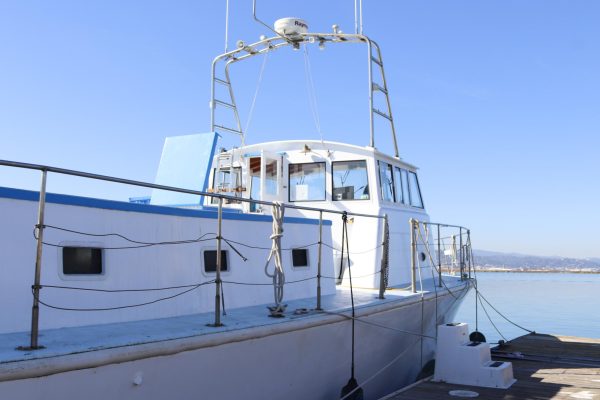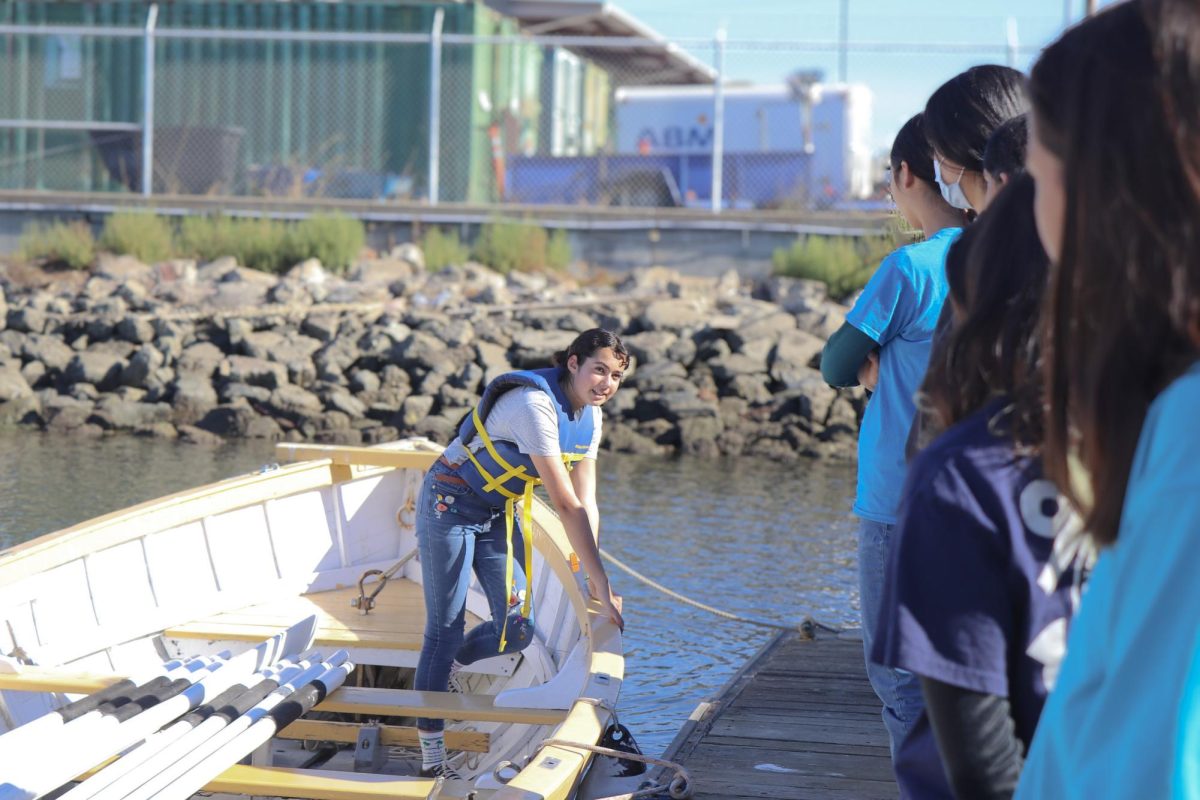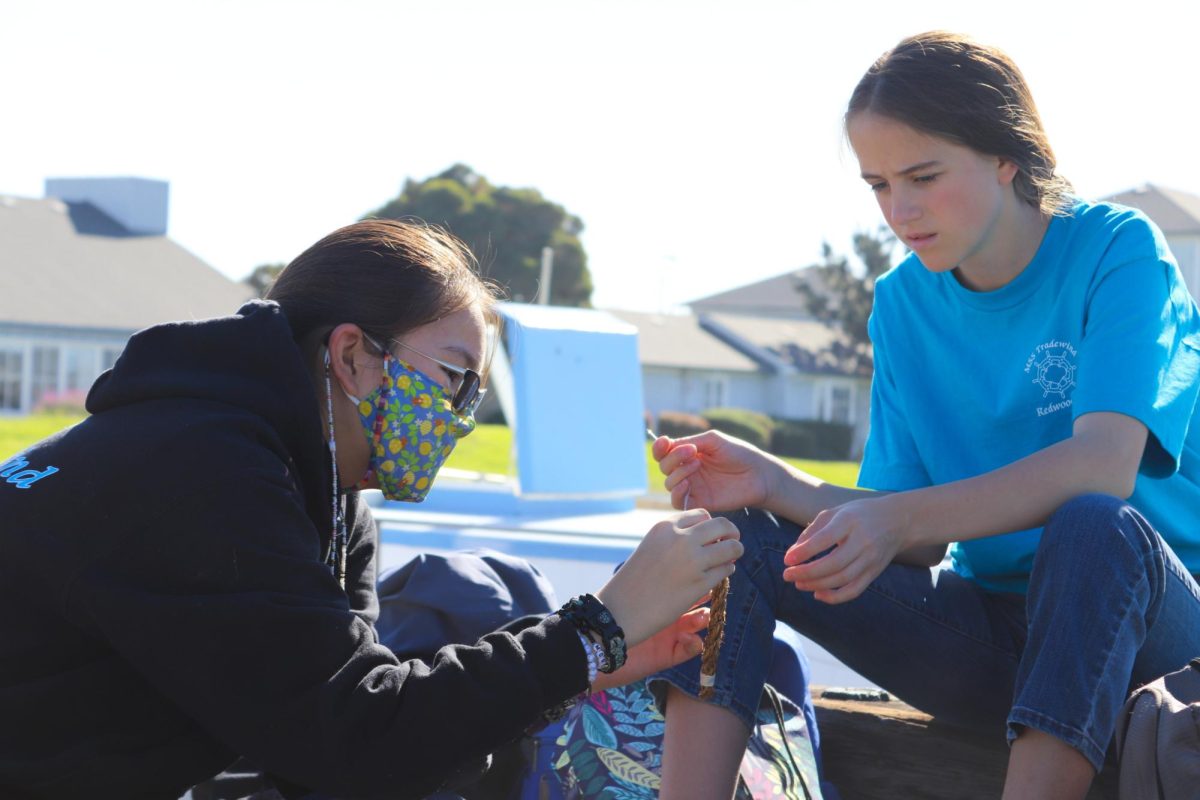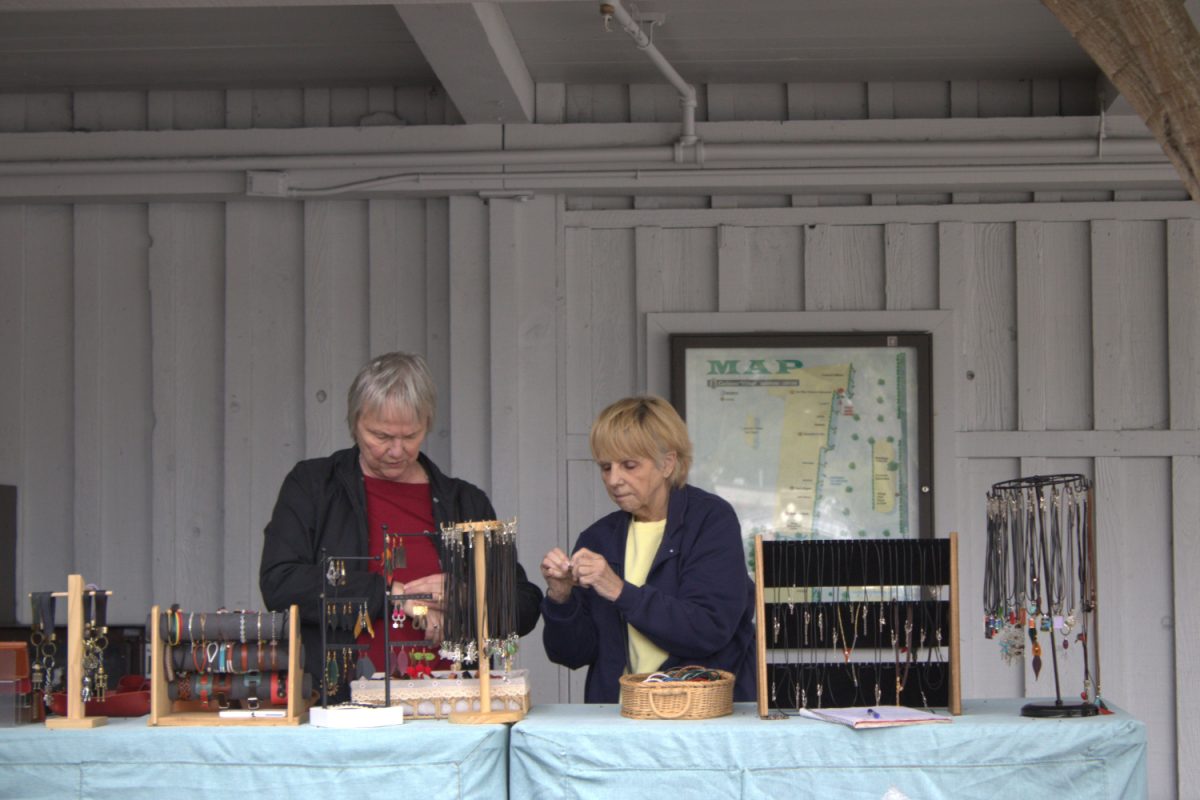The Mariner Scout Ship (MSS) Tradewind is more than just a vessel; it’s a voyage of empowerment, skill-building, and camaraderie for young mariners.
Established in 1954 and based in Redwood City Marina in California, the MSS Tradewind has navigated through decades of history, fostering leadership, teamwork, and a love for the sea among hundreds of girls ranging from 14 to 18 years old.
Girls in the Mariner Scouts program begin with basic safety and seamanship skills, community service, and interest projects related to water-based activities. They progress to supervisory and instructional levels as they refine their boating skills and develop leadership abilities.
The Mariner Scouts, with a current number of 22 registered members, typically meet every Saturday from 10 a.m. to 2 p.m. to complete a variety of activities.
Leslie Feyling, who has been a part of the program for 25 years, occupies the role of skipper, the group’s primary adult adviser, and directs the scouts in their planning of activities.
“Our meetings look different depending on the time of year. During the summer, we spend more time maintaining and working on our big boat while using our smaller vessels like canoes, kayaks, stand-up paddle boards, and row boats. This time of year, in the fall, we’re learning nautical skills such as navigation,” Feyling said. “In the spring, we participate in nautical-based competitions, so the crew prepares and practices.”
A defining component of the program is its welcoming environment. Feyling stresses that striving for this kind of setting is most important to her.
“We don’t care who you are. If you want to be here, then we want you to be here. My favorite thing about us is our camaraderie. I’ve been in the program since 1998, and my best friends that I have as an adult were also in Mariner Scouts. We get to have a lot of cool experiences together that others don’t get the opportunity to have, and we get to build these lasting friendships with each other,” Feyling said.
Mariner Scout member Keylee Villanueva emphasizes the exciting community the group has cultivated as well as the skills members develop that they can apply in the real world.
“We learn so many new things while working as a team and improving our leadership skills. For instance, whenever we’re going on field trips, we have to plan thoroughly by making sure there’s enough food and supplies and creating a packing list because the ship needs to be organized,” Villanueva said.
The Mariner Scouts, most of whom are in high school, often take charge of all their own activities, teaching them valuable lessons in leadership.
Keira McLintock, who has been in Mariner Scouts for about two years, is currently the boatswain.
“I’m a little like the equivalent of a student body president for this group. I plan every meeting, and I’m in charge of running it, working with the crew, resolving problems, and more. This role has definitely given me a lot of skills that I’ve carried over into my everyday life,” McLintock said.
In addition to McLintock, there are also two boatswain’s mates, or vice presidents, as well as a secretary.
Feyling agrees that the biggest skills that are taught in the program have nothing to do with boating. The crew develops leadership and teamwork skills as they are responsible for all planning.
“The planning really teaches them to look at the big picture and then compartmentalize and break things down into smaller steps. I think planning skills have really helped me to be an organized, proactive person in life. It’s easy to take these skills and apply them to projects at work, for example, and become organized, focused, and efficient with what I’m doing,” Feyling said.
The Mariner Scouts maintain their boat themselves, often with a fair deal of scrubbing, swabbing, and polishing.

“We also do a lot of upgrades on the boat to make it more comfortable and improve its appearance. The type of boat we have is very easy to maintain. I would say we average, over the course of the whole year, a couple of hours per week spent on maintaining the boat and keeping it up to speed,” Feyling said.
The MSS Tradewind is a former U.S. Navy Landing Craft Swimmer Reconnaissance Vessel (LCSR), a vessel designed to drop off and retrieve Navy SEALs (Sea, Air, and Land). It never got past the testing stage. Seven LCSRs were built by Uniflite during the Vietnam War and designed for the Navy as a fast, well-armed patrol boat, seaworthy enough for offshore patrols but with a small enough draft to permit operations in coastal waters.
The Mariner Scouts took over the vessel in 1994, made changes to adapt it for the crew’s use, and has been operating it ever since. Among other things, the crew has added a hydraulic steering system, and some water-holding tanks, and redesigned the galley and both heads in the past. A great deal of hard work has gone into the boat.
To pay for the boat maintenance, fuel costs, activity costs, and more, the crew is currently running its annual tree lot fundraiser in Palo Alto, according to Feyling. The crew puts a lot of time and effort into setting it up each year.
The scouts also participate in community service projects. In late October, members made holiday cards for the military and invited other Girl Scout troops to attend.
The crew also does activities with other ship crews in competitions, called regattas, about three times a year between spring and summer, and they last anywhere from one to three days long.
Each competition usually has 19 to 25 separate events that the crews compete in involving skills such as knot tying, sailing, and navigation. In the summer, the Mariner Scouts go on a cruise in their boat for about a week, sleeping in the crew’s quarters each night.
“We do a lot and we learn a lot as a team. I have benefitted so much through these experiences. Through various activities and applying skills both on our boat and in our lives, we have fun and form friendships while working towards our own goals,” McLintock said.













